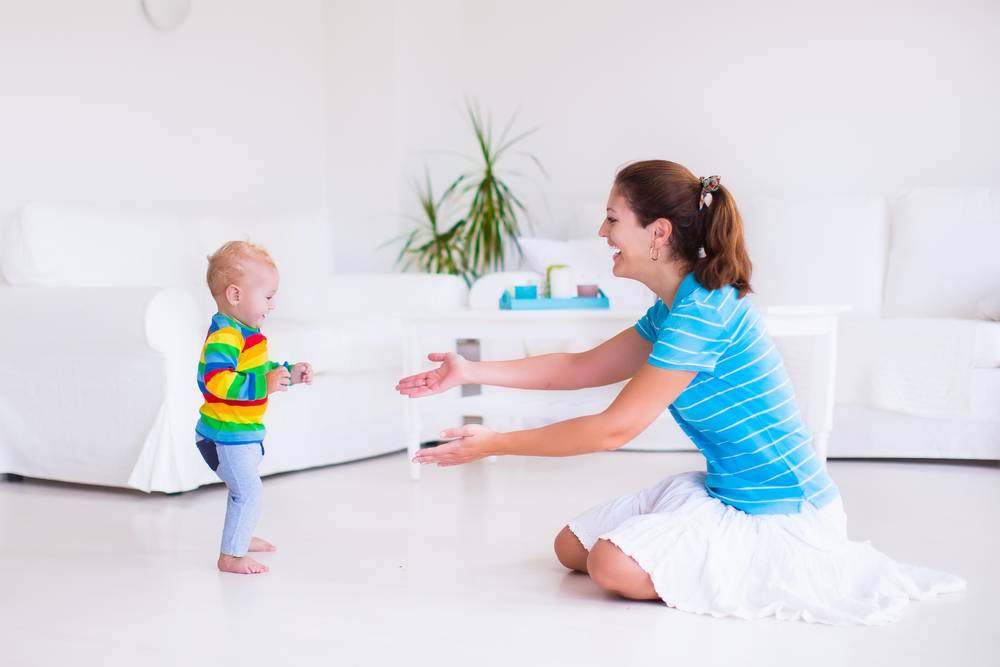Key points:
- Gross motor development is more than just movement and leads to a better understanding of the social and physical environment.
- Gross motor development requires a combination of programmed neural maturation and consistency in daily exercise.
- The ability to grasp occurs before birth, and successful reaching is typically achieved at around 4 months, leading to further exploration of the physical world.
- Walking impacts a baby’s cognition and social development, and practice accelerates the process of mastering this skill.
Gross motor development involves much more than just movement, it also leads to an understanding of the social and physical environment.
Once a baby masters the motor milestones, their experience will become broader and their perception of the world will drastically improve. Acquiring gross motor skills comes hand in hand with a sense of independence, higher self-esteem, stronger muscle growth, and better coordination of neural circuits. Also, the rate at which your baby acquires their motor skills has little relevance to their IQ score or any cognitive performance as long as they lie in the normal range.
Does motor development happen naturally?
It was thought that motor skills developed naturally, but it seems that nurture also plays a role in their reinforcement. In other words, gross motor development needs a combination of a programmed sequence of neural maturation and consistency in daily exercise. The motor cortex is one of the first areas of the brain that shows electrical activity, but it takes a while for it to fully mature. The neuromuscular maturation is indeed “hard-wired” and its pace determines this progression, but if there is no neuromuscular maturation, then practice will not influence the development at all.
The road to gross motor development
The ability to grasp occurs before birth, though this is purely reflexive and it disappears after two months. This phase is called the fixed extension because it involves an extension of the arm while the fists are tightly closed. Normally, successful reaching is achieved around the 4th month, and by the 6th month, the action is smooth, accurate, and very much controlled. Once your baby has mastered their reaching abilities, they will be taking their first steps into exploring the physical world.
Walking equally impacts your baby’s cognition. They will experience cognitive and social development once they master this skill. However, your little one needs to have developed stability and strength. Walking involves the central pattern generator (CPG) —a network that triggers rhythmic muscular activity. The CPG matures early, influencing the stepping reflex where a baby tries to take a step when held up vertically with their feet touching a flat surface.
However, real walking requires a fully mature nervous system. On one hand, the brain areas controlling leg movements are essential, as well as sensory and motor systems that are involved in balance and posture. Your baby’s growth also improves balance due to the new body proportions. On the other hand, practice is useful in walking because, even though the spinal cord and CPG can produce a stepping pattern, the cortex decides when to start walking and so it adjusts the CPG to match the environment that the baby is trying to navigate.
The first steps stabilize several pathways in the brain that are needed for a smooth transition to learning how to walk like an adult —and practice accelerates this process! Studies suggest that babies who exercise this milestone earlier, tend to walk earlier than those who didn’t practice.
In conclusion
Practice strengthens your baby’s muscles and turns on the neural pathways. Thus, gross motor development is a blend between nature and nurture. Genes set the lower limit for when these skills can initiate their mastery, and once the nervous system is set, practice strengthens these circuits, resulting in skilled and refined movements.
Remember that, as a parent, you can encourage your little one so they can reach different motor milestones by practicing and doing exercises that develop these skills.








